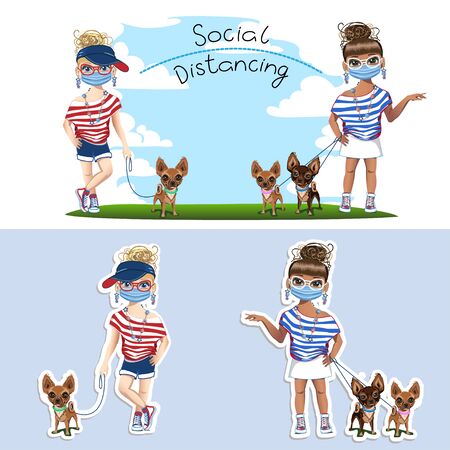Understanding Pet Death: Why Honesty Matters
In households across the UK, pets are often cherished members of the family, offering companionship, comfort, and a unique bond that shapes childhood memories. When a beloved pet passes away, adults may instinctively want to shield children from pain by softening the truth or avoiding the topic altogether. However, UK experts strongly recommend an honest approach when discussing pet death with children. Being truthful about the loss is not only vital for helping young ones navigate their first real experience with grief, but it also lays important groundwork for building trust and emotional resilience. By understanding the significance of honesty in these difficult moments, parents and caregivers can support children as they process their feelings and learn valuable life lessons about love, loss, and empathy.
2. The British Approach: Insights from Local Experts
When it comes to discussing the death of a beloved pet, British experts emphasise the value of honesty and openness. According to UK animal behaviourists, children form deep bonds with their pets, often seeing them as family members or close friends. A transparent conversation about pet loss is therefore crucial for healthy emotional development. Local child psychologists point out that shielding children from the reality of death can lead to confusion and even mistrust later in life. Instead, they recommend using clear and age-appropriate language, avoiding euphemisms that might complicate a child’s understanding.
Veterinarians across the UK echo these sentiments, noting that children who are gently guided through the process of saying goodbye often cope better in the long run. In many British households, pets are considered part of the extended family, so their passing is a significant event. UK experts suggest involving children in memorial activities, such as creating a memory box or writing a letter to their pet, which helps foster acceptance and provides an opportunity for families to support one another emotionally.
Expert Recommendations at a Glance
| Expert | Key Advice |
|---|---|
| Animal Behaviourist | Encourage open conversations; validate childrens emotions |
| Child Psychologist | Use honest language; avoid misleading euphemisms |
| Veterinarian | Involve children in memorial rituals; offer reassurance and support |
This holistic approach reflects the British ethos of gentle honesty and respect for both pets and people. By drawing on insights from local professionals, families across the UK can navigate the difficult topic of pet loss with compassion, clarity, and cultural sensitivity.

3. Navigating the Conversation: Age-Appropriate Strategies
When discussing the death of a pet with children, UK experts emphasise the importance of tailoring your words and approach to suit your child’s age and emotional maturity. British culture values both honesty and sensitivity, so striking this balance is key when having difficult conversations. For very young children, typically under five, it’s best to use clear and simple language. Avoid euphemisms like “gone to sleep” which can be confusing or frightening; instead, gently explain that their pet has died and will not be coming back. You might say, “I’m very sad to tell you that our guinea pig, Pickles, has died. That means her body stopped working, and she won’t wake up.”
For children in primary school, aged between six and eleven, they may have more questions about what death means. It’s important to answer honestly without overwhelming them with unnecessary detail. Encourage them to share their feelings and reassure them that it’s normal to feel upset or angry. You could explain, “Lots of people feel sad when a pet dies because we loved them and miss them. If you want to talk about how you feel or ask questions, I’m here for you.”
Teenagers may process grief differently and can often handle more direct conversation about loss. Respect their need for privacy but offer opportunities for open dialogue. British families sometimes find comfort in shared rituals—like creating a memory box or writing letters to the pet—that acknowledge both the loss and the love shared.
The words you choose should reflect warmth and compassion, avoiding overly clinical terms while still being truthful. Remember that British sensibilities often favour understatement; there’s no need for dramatic expressions if they don’t fit your family’s style. Allowing space for quiet reflection or even humour (if appropriate) can also help children of all ages cope with grief in a way that feels natural within the UK context.
4. Supporting Children Through Grief
Helping children navigate the loss of a beloved pet is both a delicate and crucial task. Experts in the UK emphasise the importance of providing ongoing support, reassurance, and age-appropriate resources during this challenging period. Here are some practical strategies for supporting children through their grief, alongside valuable UK-specific resources that families can rely on.
Practical Advice for Parents and Carers
- Encourage Open Conversations: Allow children to express their feelings without judgement. Phrases like “It’s okay to feel sad” validate their emotions and foster trust.
- Create a Safe Space: Let children know it’s normal to grieve in different ways—some may want to talk, draw, or even write letters to their pet.
- Maintain Routines: Keeping familiar routines provides a sense of stability amidst emotional upheaval.
- Use Honest Language: Avoid euphemisms that might confuse children; use clear and gentle words such as “died” rather than “went to sleep.”
UK Resources for Bereaved Children
| Resource | Description | How to Access |
|---|---|---|
| PDSA Pet Bereavement Support Service | A free helpline offering compassionate guidance for families experiencing the loss of a pet. | Call 0800 096 6606 or visit PDSA website |
| The Blue Cross Pet Bereavement Support | Confidential telephone and email support, plus downloadable guides for children and parents. | Call 0800 096 6606 or visit Blue Cross website |
| Child Bereavement UK | Charity offering advice, online resources, and workshops specifically tailored for young people facing loss. | Visit Child Bereavement UK website |
Educational Materials & Activities
- Many UK animal charities provide storybooks, activity sheets, and memory-making kits designed to help children process their feelings constructively.
- Libraries often stock age-appropriate books about pet loss; ask your local librarian for recommendations relevant to your child’s age group.
Coping Together: Community Support Groups
If you feel your child could benefit from connecting with others going through similar experiences, look for community support groups or school-based counsellors who can offer additional understanding and guidance. These networks can be especially helpful if your family keeps unusual pets, as meeting others with shared experiences reinforces that no one is alone in their grief journey.
5. Lessons from Animals: Building Resilience and Empathy
For many UK families, pets are not simply animals but cherished members of the household, often featuring in daily routines and even family holiday cards. When a beloved guinea pig, budgie, or ferret passes away, it can be tempting to shield children from the reality of death. However, British child psychologists and animal welfare experts stress that honest discussions about pet loss are key to nurturing emotional growth in young people. By talking openly about what has happened—using age-appropriate language and avoiding euphemisms like “gone to sleep”—children are invited to process their feelings, ask questions, and express grief in a safe environment.
Through these frank conversations, children begin to understand that sadness is a natural response to losing someone they love. Rather than fostering fear or confusion, honesty helps demystify death, making it a part of life’s cycle rather than an unspeakable taboo. UK experts note that this approach builds resilience; children learn that while pain and loss are difficult, they are experiences that can be managed and overcome with time, support, and kindness.
Moreover, sharing memories about the pet and acknowledging the value of its life encourages empathy—not only for animals but also for other people facing loss. Children who navigate these emotions with guidance become more compassionate friends, siblings, and classmates. They may even develop a lifelong respect for animal welfare, understanding that caring for a living creature carries both joy and responsibility.
As any owner of an unusual pet will know—from keeping axolotls in aquariums to hand-feeding pygmy hedgehogs—the bonds we form with our animal companions are unique and deeply personal. By being open about their passing, parents help young people make sense of complex emotions in a world where change is inevitable. Ultimately, these lessons extend far beyond the home: they prepare the next generation to face life’s ups and downs with courage and heart.
6. Common Missteps: What Not to Say
When discussing the death of a beloved pet with children, UK experts strongly caution against using euphemisms or misleading phrases, as these can create confusion and even distress. It might feel kinder to say a pet has “gone to sleep” or “run away,” but such expressions often leave children wondering if their companion will return, or foster unnecessary fears around sleep and separation.
Phrases to Avoid
Specialist advice highlights several common missteps:
- Avoid saying the pet “has gone on holiday” – this can instil false hope that the animal will come back.
- Steer clear of suggesting the pet is “sleeping forever” – younger children may develop anxieties about bedtime or fear that others could ‘go to sleep’ and not wake up.
- Refrain from using terms like “put to sleep” without further explanation, as this can be particularly frightening if your child associates it with routine naps or bedtime.
Why Clarity Matters
According to British child psychologists, honesty paired with gentle directness is crucial. Children process grief differently from adults and benefit from clear language that matches their developmental stage. Vagueness or half-truths may unintentionally prolong confusion or hinder emotional healing.
Expert Tip
If you’re unsure how to phrase things, consider simple, age-appropriate explanations like, “Our pet died because their body stopped working.” This approach fosters trust and helps children understand that death is a natural, though sad, part of life. The goal is always to support children in processing loss while feeling safe and respected within their family environment.


